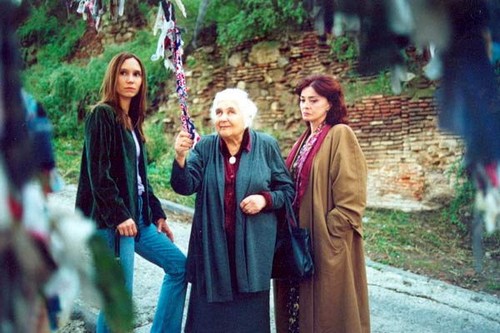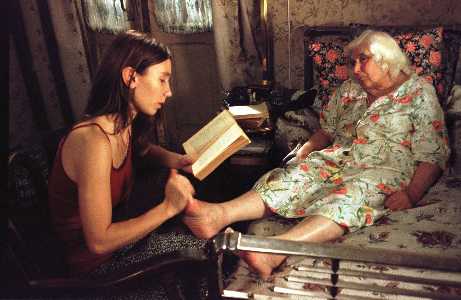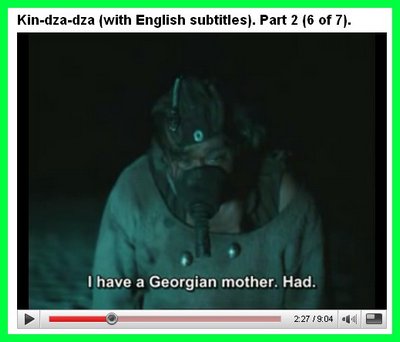
Warning: The following contains a spoiler for the film Depuis qu’Otar est parti. Go away if you want to see the film first.
I’ve long been bothered by the part near the end after Eka learns that Otar is dead. I was content to just let it go as one of those open-ended things that make the movie like real life, until I read the explanation on Wikipedia:
Eka breaks down with the initial shock, but soon recovers and returns to meet Ada and Marina, as they are due to return to Georgia. In a reversal of roles, and to the bemusement of the two younger women, Eka decides that it would hurt them to know of Otar’s death, and pretends that he has gone to America without telling them.
But it can’t be just a role reversal. Because now Eka knows, not just that Otar has died, but that he died some time ago. What then about all those letters she had received from Otar since he died? She has to know at this point where they came from.
In the first big lie, Marina and Ada were keeping the truth from Eka, who truly did not know that Otar was dead.
But in the 2nd lie, Eka has to know that she’s not fooling anyone. I took it to mean she just found a way to decide that even though she knew what had happened, and they knew she knew, and she knew that they knew that she knew, that they were all going to pretend it didn’t happen.
I also found it interesting that the filmmaker (Julie Bertucelli) also saw fit to introduce the topic that during the Soviet days they had been living a lie. Marina’s boyfriend Tengiz explains this to Ada as part of an attempt to convince her not to be too hard on her mother. So living a lie during the Soviet days may have influenced the characters to play these games now in which they lovingly tell big lies to each other. I’m going to have to listen to that part again, though, to see if there was something more profound that I’m supposed to learn.
BTW, I liked how all the characters grew in the movie, including Eka. She is a sweet old grandmother who is much loved by her granddaughter, but she is also somewhat selfish. But she finally learns to let go of Otar and also to let go of granddaughter Ada, whom she always preferred over her own daughter Marina. She is willing to go back to Georgia to life without her beloved Ada, where she will have to get along with Marina, with whom she had always clashed. And it’s all accomplished without any histronics. It’s just the right touch.

